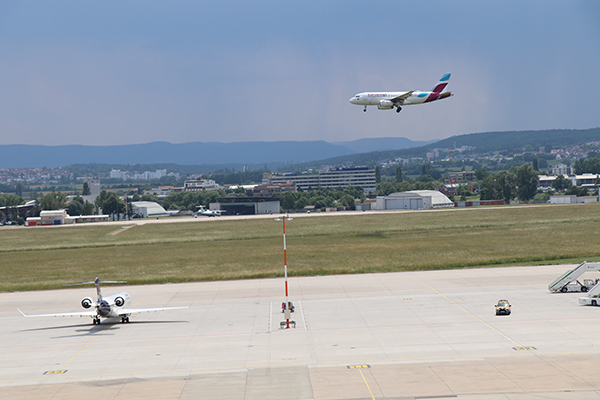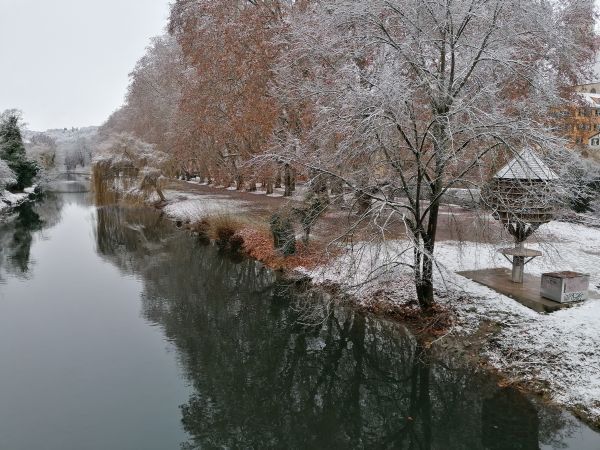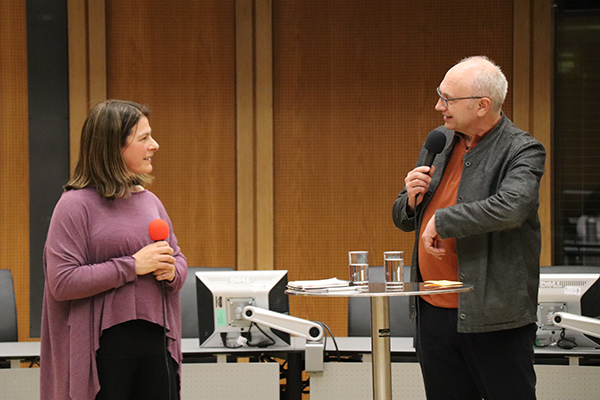German citizens need a visa to enter some countries. This applies, for example, to India, Brazil, Australia, Saudi Arabia, Egypt, Namibia, Nepal and Vietnam. For China, however, Germans no longer need a visa for stays of up to 15 days since December 1, 2023. As the entry requirements vary depending on the destination and may be subject to current changes, it is recommended that you check the website of the Federal Foreign Office well in advance of your trip and then apply for a visa: Travel and security advice for your destination country—Federal Foreign Office (auswaertiges-amt.de) You should also check… Read More
Category: 982 – UK .EN
Waste: What to do with old CDs or the electric cooker?
Where can glass, old clothes, batteries, CDs, electrical appliances and even hazardous waste be disposed of? On the website of the waste management company in the district of Tübingen you will find the addresses of the collection centres for the different types of waste. There are special collection points throughout the city of Tübingen for old clothes and shoes, glass, CDs, but also for problematic waste such as small electronic appliances, mercury thermometers, batteries and adhesives and more. Refrigerators and freezers, cookers, washing machines, televisions, computers, but also wooden furniture, scrap metal and bulky waste are collected twice a year—but… Read More
Why February 29 exists
By Bright Igbinovia and Ute Kaiser Sabine turns 18 on February 29—even though she was born in 1952 and is actually 72 years old. How can that be? Sabine was born on a leap day—like around 5 million people worldwide, including around 55,000 in Germany. What is a leap day? This extra day is added to the month of February during a leap year. This year, February has 29 days instead of 28 and the leap year has a total of 366 days instead of 365. The starting point was the Julian calendar from 45 BC. This solar calendar was… Read More
Duty of winter road clearance
In Germany, private citizens are generally required to clear snow in winter and grit when it is slippery. Most cities and municipalities regulate where and to what extent in their own bylaws. If you live in Tübingen, you are responsible for all public traffic areas that run alongside your house. Anyone who lives in a house, regardless of whether they are a tenant or a house owner, must clear snow and spread ice. The obligation to clear and spread snow applies primarily to pavements, footpaths and stairways. However, it also applies to other public traffic areas, such as the waiting… Read More
Partner district in Israel for Tübingen
The district of Tübingen is looking for a partner district in Israel. District Administrator Joachim Walter announced this at an event on 6 February 2024 at the Tübingen District Office. He is in contact with the Israeli Consul General in Munich and the district council has signalled its approval. Walter first made the project public during his welcoming address for a film evening entitled “Being a refugee”, to which the director Nurit Karmel had travelled from Haifa in Israel. Prior to this, he had spanned the spectrum from “Never again”, as the liberated from concentration camps in 1945 wrote on… Read More
Significant rise in first-time asylum applications
Germany was once again the main destination for refugees in the European Union in 2023. 329,120 people made an initial application for asylum here. This is an increase of 51.1 percent compared to 2022 with 217,774 first-time applications. These figures were published by the Federal Office for Migration and Refugees (BAMF) in its annual statistics. In addition to the initial applications, there were 22,795 subsequent applications. People from Syria made the most initial applications for protection in Germany with 102,930. This is followed by Turkey with 61,181, Afghanistan with 51,275, Iraq with 11,152 and Iran with 9,384 first-time applications. Applications… Read More
Exhibition “Sleepless”: Ukrainian illustrations of the war
The exhibition “Sleepless: Ukrainian Illustrations of War” can be seen in Tübingen at Atelier / Café Haag (Vor dem Haagtor 1) until 23 February. Admission is free. The cinema pub opens 30 minutes before the start of the first film and closes at 11 pm on Mondays and Tuesdays, midnight on Wednesdays and Thursdays, 2 am on Fridays and Saturdays and 10 pm on Sundays. The exhibition ends on Friday, 23 February. During the finissage, which begins at 6.30 pm, Afina Albrecht, board member of the Ukrainian Studio for Culture and Sport in Stuttgart and editor of the German-Ukrainian Magazine,… Read More
Studying: German exam before university
Refugees are generally allowed to study in Germany. In particular, those who have been granted asylum or have another secure residence status have good chances. “The same conditions apply to you as to other international prospective students,” says the website of the Federal Ministry of Education and Research: https://www.study-in-germany.de/de/studium-planen/besondere-lebensumstaende/studienangebote-fuer-gefluechtete/ A lot more information can also be found there. If migrants want to study at a German university, they usually have to prove that they speak German well. However, there are exceptions. If you have a good command of English, you can enrol on an international degree programme or special English-language… Read More
Narri-Narro: about the origins of carnival
By Oula Mahfouz Whether it’s Fasnet, Fasching or Carnival: the jesters are ready for their most important days of the year. The highlight of the carnival season begins on “schmotziger Donnerstag”. This year it is on February 8. In the days that follow, there are parades, children dress up and paint their faces, and some adults also hide their faces behind scary masks and slip into colorful costumes. On Ash Wednesday, February 14, it’s all over. The biggest parade in the region takes place on Sunday, February 11 in Rottenburg. The carnival tradition is firmly anchored in the Christian calendar… Read More
Law on faster deportation passed
Rejected asylum seekers are to be deported from Germany more quickly in future. After the Bundestag, the Bundesrat also approved the “Act to Improve Repatriation” at the beginning of February. This law is controversial. Various groups from human rights organizations to sea rescue are protesting against it—as well as demonstrators in Tübingen. Among other things, the law provides for criminals to be deported more quickly. As a rule, deportations will no longer be announced. Authorities have more opportunities to search—for example, for documents to determine the country of origin. Police officers are also allowed to search rooms other than the… Read More










